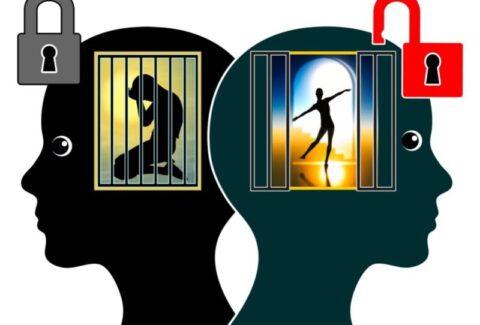Self-Identity and Reminiscence Therapy: Strengthening the Sense of Self Through Reflection

Self-Identity and Reminiscence Therapy: Strengthening the Sense of Self Through Reflection
Introduction
Self-identity[1], the understanding of who we are as individuals, forms the foundation of our thoughts, behaviors, and interactions with the world. It encompasses our beliefs, values, memories, and experiences, all of which contribute to our sense of self. As people age, they may face challenges to their self-identity, such as retirement, loss, or cognitive decline.[2] Reminiscence Therapy, a therapeutic practice that involves recalling and reflecting on past experiences[3], offers a valuable approach to reinforcing and maintaining self-identity, particularly in later life. This article explores the relationship between self-identity and Reminiscence Therapy, highlighting how reflecting on the past can help individuals preserve and strengthen their sense of self.
Understanding Self-Identity
The Concept of Self-Identity[4]
Self-identity refers to the awareness of oneself as a distinct, continuous entity, with a unique set of characteristics, beliefs, and experiences. It is shaped by:
- Personal History: The accumulation of experiences, memories, and milestones that define an individual’s life.
- Values and Beliefs: The principles and convictions that guide a person’s decisions and actions.
- Social Roles: The roles and relationships an individual occupies within their family, community, and society.
- Life Narratives: The stories people tell about themselves, which integrate past, present, and future experiences into a coherent identity.[5]
Challenges to Self-Identity
Throughout life, various factors can challenge[6] an individual’s sense of self-identity:
- Aging: The aging process can bring about physical, cognitive, and social changes that may threaten self-identity, such as retirement, bereavement, or declining health.
- Cognitive Decline: Conditions like dementia can impair memory and cognitive function, making it difficult for individuals to recall personal history and maintain a coherent sense of self.
- Life Transitions: Major life transitions, such as moving to a new home, losing a loved one, or experiencing a significant health event, can disrupt self-identity and lead to feelings of uncertainty or loss.
The Role of Reminiscence Therapy in Preserving Self-Identity
What is Reminiscence Therapy?
Reminiscence Therapy involves the structured recall and reflection on past experiences, often facilitated by a therapist or caregiver. This therapeutic approach can take various forms:
- Simple Reminiscence: Encouraging individuals to share memories and stories from their past.
- Life Review Therapy: A more comprehensive exploration of significant life events, with the goal of integrating these experiences into a cohesive life narrative.
- Narrative Therapy: Helping individuals reconstruct and revise their personal narratives to strengthen their sense of self and resolve emotional conflicts.
How Reminiscence Therapy Supports Self-Identity
Reinforcing Personal History
Reminiscence Therapy[7] helps individuals recall and reflect on their personal history, reinforcing the continuity of their identity. By revisiting significant life events, individuals can reconnect with the experiences and milestones that have shaped their sense of self. This process of recalling personal history is particularly important for maintaining self-identity in older adults and individuals with cognitive decline.
Research published in The Gerontologist highlights that Reminiscence Therapy can strengthen self-identity by helping individuals maintain a sense of continuity and coherence in their life story (Westerhof & Bohlmeijer, 2014).
Affirming Values and Beliefs
Through Reminiscence Therapy, individuals can reflect on the values and beliefs that have guided their life decisions and actions.[8] This reflection allows them to affirm and reinforce these core aspects of their identity, even as they face changes in their physical or cognitive abilities. By reaffirming their values and beliefs, individuals can maintain a strong sense of self, despite the challenges they may encounter.
A study in Aging & Mental Health found that Reminiscence Therapy can help older adults reaffirm their values and beliefs, which contributes to a stronger sense of self and improved psychological well-being (Gibson, 2004).
Integrating Social Roles
Reminiscence Therapy encourages individuals to reflect on the various social roles they have occupied throughout their lives, such as being a parent, spouse, friend, or professional. By revisiting these roles and the relationships they have formed, individuals can integrate these experiences into their self-identity, reinforcing their sense of belonging and purpose within their social network.
According to research in Journal of Aging Studies, reminiscing about social roles and relationships helps individuals maintain a sense of identity and social connectedness, which is crucial for emotional well-being in later life (Coleman, 2005).
Constructing a Coherent Life Narrative
A central goal of Reminiscence Therapy is to help individuals construct a coherent life narrative[9] that integrates their past experiences into a unified story. This narrative construction is essential for self-identity, as it allows individuals to understand and make sense of their life journey. By organizing their experiences into a coherent narrative, individuals can maintain a strong sense of self and find meaning in their life story.
A meta-analysis in Psychological Bulletin indicates that constructing a coherent life narrative through Reminiscence Therapy is associated with higher self-esteem, greater life satisfaction, and a stronger sense of self-identity (Pasupathi & Mansour, 2006).
Applications of Reminiscence Therapy in Strengthening Self-Identity
Geriatric Care
In geriatric care, Reminiscence Therapy is used to help older adults maintain a strong sense of self-identity as they navigate the challenges of aging.[10] By encouraging reflection on personal history, values, and social roles, this therapy helps individuals reinforce their self-identity and preserve their psychological well-being (Westerhof & Bohlmeijer, 2014).
Dementia Care
For individuals with dementia, Reminiscence Therapy can play a crucial role in preserving self-identity. By recalling and sharing memories, individuals with dementia can maintain a connection to their past and reinforce their sense of self, even as they experience cognitive decline (Woods et al., 2005).
Palliative Care
In palliative care, Reminiscence Therapy offers a way for individuals to reflect on their life story and affirm their self-identity as they approach the end of life.[11] This process can provide emotional comfort and a sense of closure, contributing to a peaceful and dignified end-of-life experience (Macleod et al., 2015).
Conclusion
Self-identity is a fundamental aspect of psychological well-being, shaping how we perceive ourselves and our place in the world. Reminiscence Therapy offers a valuable approach to preserving and strengthening self-identity, particularly in the face of aging, cognitive decline, and life transitions. By encouraging reflection on personal history, values, and social roles, Reminiscence Therapy helps individuals maintain a coherent sense of self and find meaning in their life story. Whether used in geriatric care, dementia care, or palliative care, Reminiscence Therapy provides a powerful tool for enhancing self-identity and supporting overall well-being.
[1] Thoits, Peggy A. “Self, identity, stress, and mental health.” Handbook of the sociology of mental health (2013): 357-377.
[2] Kohon, Jacklyn, and Paula Carder. “Exploring identity and aging: Auto-photography and narratives of low income older adults.” Journal of Aging Studies 30 (2014): 47-55.
[3] Matheson-Monnet, Catherine. “Reminiscence Therapy and intergenerational interventions for enhancing self-identity and social inclusion of older people and people living with dementia (PLDs).” Handbook on promoting social justice in education (2020): 687-710.
[4] Drummond, John J. “Self-identity and personal identity.” Phenomenology and the cognitive sciences 20.2 (2021): 235-247.
[5] Lumsden, David. “Whole life narratives and the self.” Philosophy, Psychiatry, & Psychology 20.1 (2013): 1-10.
[6] Nach, Hamid. “Identity under challenge: Examining user’s responses to computerized information systems.” Management Research Review 38.7 (2015): 703-725.
[7] Park, Kyongok, et al. “A systematic review and meta-analysis on the effect of Reminiscence Therapy for people with dementia.” International psychogeriatrics 31.11 (2019): 1581-1597.
[8] Hallford, David John, et al. “Remembering for resilience: Brief cognitive‐reminiscence therapy improves psychological resources and mental well‐being in young adults.” Applied Psychology: Health and Well‐Being 14.3 (2022): 1004-1021.
[9] Pierce, Thomas W., and A. N. Elliot. “Recent progress in reminiscence research.” International perspectives on reminiscence, life review and life story work (2019): 38-59.
[10] Lodha, Pragya, and Avinash De Sousa. “Reminiscence therapy in geriatric mental health care: A clinical review.” Journal of Geriatric Mental Health 6.1 (2019): 7-13.
[11] Bozkurt, Canan, and Yasemin Yildirim. “The effectiveness of reminiscence therapy on the symptom management, the life satisfaction, and the self-transcendence in palliative care patients: a randomized controlled trial.” Supportive Care in Cancer 32.7 (2024): 431.






